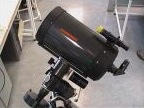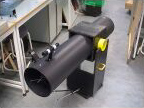Fostering multi-skill development in
final-year undergrads through inter-disciplinary
project-based activities.
Fostering multi-skill development in
final-year undergrads through inter-disciplinary
project-based activities.
(TLF/2001-2002/small-project-00/15)
Project Applicant: Dr Noel Murphy, School of Electronic Engineering
Project Coordinators:
Dr Brian Lawless, School of Physical Sciences (Final-year project coordinator, B.Sc in Applied Physics)
Ms Jennifer Bruton, School of Electronic Engineering (Chair of ME programme)
Dr Sean Marlow, School of Electronic Engineering (Chair of EE programme)
Mr. Charlie Daly, School of Computer Applications (Final year project co-ordinator B.Sc. in Computer Applications)
Prof Pat McNally, School of Electronic Engineering (Director of RINCE)
Summary of project proposal
The final year individual project makes an important contribution
to producing broadly-skilled well-rounded practitioners in their
respective areas, particularly if the project work is situated
in an industrial, research group or other practical and motivational context.
This project is about supporting project-based learning activities
that are manifestly multi-disciplinary, team-based and long-term,
and provide a practical and motivational context where an industrial or research one is not possible.
The idea of this project was that students from mechatronic engineering,
electronic engineering, applied physics and computing would cooperate
on a multi-disciplinary project to design, construct, commission and
use a web-interfaced astronomical telescope. The intention was
that the individuals involved would end up not only developing
their own discipline skills, but also their ability to operate
in a multi-disciplinary team.
Beyond this, the project was about putting in place the mechanisms
for supporting inter-disciplinary project-based-learning activities
that would provide long-term benefits to DCU students.
The telescope was to be a seed for this process.
The original project proposal is available here
Project Implementation

 Following valuable advice from Dr Hugh Masterson and Dr Brian Lawless,
it was decided that a single large astromonical telescope was not
necessarily the best way to proceed. If we put in place a more
diverse set of optical instruments, projects would also be enabled in
the free-space optical communications and atmospheric pollution monitoring areas.
Consequently, the project eventually decided on a single 8-inch Celestron
astronomical telescope on an equatorial mount,
along with three 8.75-inch DTG telescopes on Dobsonian mounts.
The two types of telescope are shown on the left and right respectively.
(Click on the thumbnails to see larger versions)
Following valuable advice from Dr Hugh Masterson and Dr Brian Lawless,
it was decided that a single large astromonical telescope was not
necessarily the best way to proceed. If we put in place a more
diverse set of optical instruments, projects would also be enabled in
the free-space optical communications and atmospheric pollution monitoring areas.
Consequently, the project eventually decided on a single 8-inch Celestron
astronomical telescope on an equatorial mount,
along with three 8.75-inch DTG telescopes on Dobsonian mounts.
The two types of telescope are shown on the left and right respectively.
(Click on the thumbnails to see larger versions)
Results of the project to date
In the academic year 2002-2003 we offered 6 final year projects based on the telescopes.
These were taken up by the following students.
Ciara Mulligan TC4 Optical wavefront sensing and correction
Robert Cranley ME4 Computer-controlled astronomical telescope drive system
Tom Smyth ME4 Free space optical interconnect
Paul Marron TC4 Measuring the cycles of variable stars
Maeve Coleman TC4 Atmospheric Scintillation Measurements
Niall Bolger AP4 Scintillation Spectral Measurements
In the academic year 2003-2004 we offered 2 final year projects based on the telescopes.
Padraic Cully ME4 Computer-controlled astronomical telescope drive system
Aoife White EE4 The Development of a Simple Spectrometer for Astronomical Use
This TLF project has developed in positive ways that were never envisaged in the original proposal.
For example, the possibility of using telescopes for communications purposes
and atmospheric monitoring was not originally considered.
Also, the availability of the telescopes allowed a summer intern to do preliminary work
for the new Physics with Astronomy programme being offered by the School of Applied Physics.
In this, and other ways, the telescopes have provided a focus for cooperation
in the specification and supervision of fourth-year projects where there
was little or none heretofore.
We do not believe that this TLF project has yet reached its full potential for
pedagogical benefits in terms of fostering multi-skills development
in final year students, or of fostering their ability to work in a multi-disciplinary environment.
The project has increased the interaction between ME, EE/TC and AP students where little or
none existed previously, but there is scope for much more of this.
The telescopes are capital items, now located across the
schools of MME, EE and AP, and with advent of the
Physics with Astronomy programme, combined with the continuing
interest of staff from these and other schools,
we feel that significantly more benefits will yet be derived from this investment.
If you need to talk to the project proposer, Dr Noel Murphy, try some one of the following:
School of Electronic Engineering, Dublin City University, Dublin
9, IRELAND
Tel: +353-1-7005433
Fax: +353-1-7005508
murphyn ... (this is anti-spam dross)
@eeng.dcu.ie

 Following valuable advice from Dr Hugh Masterson and Dr Brian Lawless,
it was decided that a single large astromonical telescope was not
necessarily the best way to proceed. If we put in place a more
diverse set of optical instruments, projects would also be enabled in
the free-space optical communications and atmospheric pollution monitoring areas.
Consequently, the project eventually decided on a single 8-inch Celestron
astronomical telescope on an equatorial mount,
along with three 8.75-inch DTG telescopes on Dobsonian mounts.
The two types of telescope are shown on the left and right respectively.
(Click on the thumbnails to see larger versions)
Following valuable advice from Dr Hugh Masterson and Dr Brian Lawless,
it was decided that a single large astromonical telescope was not
necessarily the best way to proceed. If we put in place a more
diverse set of optical instruments, projects would also be enabled in
the free-space optical communications and atmospheric pollution monitoring areas.
Consequently, the project eventually decided on a single 8-inch Celestron
astronomical telescope on an equatorial mount,
along with three 8.75-inch DTG telescopes on Dobsonian mounts.
The two types of telescope are shown on the left and right respectively.
(Click on the thumbnails to see larger versions)